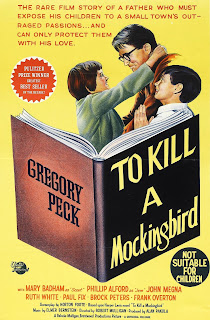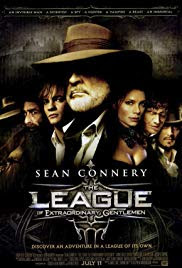To Kill a Mockingbird Review
Title: To Kill a Mockingbird (1962)
Director: Robert Mulligan
Cast: Gregory Peck, Mary Badham, Brock Peters
Summary: Atticus Finch, a lawyer in the Depression-era South, defends a black man against an undeserved rape charge, and his children against prejudice.
Sup all it's Ari, and I'm here to remove your nostalgia goggles on old movies. In 2015 Go Set a Watchman was released to the public and gained controversy over the character of Atticus Finch. Having read the book, and its sequel-prequel To Kill a Mockingbird, I won't be reviewing the movie with the books in mind. Without further ado, we'll be reviewing To Kill a Mockingbird. If you haven't seen the movie or haven't in a while, I suggest you watch it before reading on.
With this film, I can clearly say that it deserves the awards it gets, from the very beginning to the end. It tells a story of a few summers through the eyes of a child, and it honestly does it in a way that makes sense. From start to finish the film drives the point of how the world should be. Its plot is spot on with the children being first-time actors. The way they chose to emphasize the main plot of Tom Robinson's case with Boo Radley being a minor subplot it makes what Atticus, in the film at least, says at the forefront of what we should act:
"'Remember it’s a sin to kill a Mockingbird.” That was the only time I ever heard Atticus say it was a sin to do something, and I asked Miss Maudie about it.
“Your father’s right,” she said. “Mockingbirds don’t do one thing but make music for us to enjoy . . . But sing their hearts out for us. That’s why it’s a sin to kill a Mockingbird" (117).
Of course, many people use this film as a way to fight against racism. There are two more things that they forget, the physically disabled and those with special needs. Tom Robinson not only was a black man in segregated Alabama, but he also couldn't use his right arm, it honestly is a miracle for him to get a job with him being only left-handed. And Boo Radley's mental illness, back then, people with them would be sent to asylums and never coming out, but his father kept him home since he knew his son wasn't crazy. However, with the Boo Radley situation, the film decided to keep the main focus on the trial of Tom Robinson itself.
And for those who read the book, as I did in English, we know who the Mockingbird is. To me, the film isn't a message against racism, because yes, that is a theme; however, in the eyes of a child, things are far more straightforward than that of an adult. Honestly, it tells the story how many remember reading it, through a window in the eyes of Scout. It works to the point that you, as a viewer, believe that her point of view is fact.
And that's the issue. We don't see it through the eyes of Jem, or Dill, Tom Robinson, or even Atticus. It's just in the eyes of a six-year-old that doesn't know what the others around her believe. We see different points of view during the trial between each testimony and cross-examination. Still, this scene during the trial, fun fact got done in ONE TAKE is what makes Gregory Peck one of my favorite actors:
My first time seeing Mockingbird was when I was in middle school, though it was just the famous speech, back then I thought "Atticus is a hero for sticking to a man he knew didn't do it." But now that I'm older and I finally saw the film from start to end, Atticus isn't a hero for sticking it to the man against racism, now let me explain before you call me a racist, especially since you don't know me.
The time set for Mockingbird is during the Great Depression, he needs the money to help feed himself Jem and Scout, even to pay Calpurnia. We also know how it's like for some people with a character paying Atticus with vegetables and nuts.
For those who don't know the US Constitution, we're going to go the fifth and fourteenth amendments:
"No person shall ... be deprived of life, liberty, or property, without due process of law...nor shall any State deprive any person of life, liberty, or property, without due process of law" (US Legal).
In layman’s terms, they mean as a citizen, you are to be given a "fair trial" with a jury. Now yes, the judicial system does need to be fixed. However, this is what we got. So why do I bring this up? Well, Atticus is a lawyer, and he's doing his job. And in the film, we don't know what he believes since we only see it through Scout's eyes. The movie itself clearly shows he's doing his job, at the end of the trial he even tells Tom "don't worry I told your wife we'd lose", he already knew the outcome and did his best to sway the jury, that is why the balcony stood when he left instead of when the judge did.
Rewatching this movie, you can tell that it isn't for those who are fans of the book; however, it does give a reasonable interpretation of the trial itself.
With that I'm going to give this movie an A-, it's not faithful to book, but it tells an American classic that is ultimately one of the films that will never be remade.
To find out what next week's review is, follow me on Instagram and Twitter @scriptwizard1998 for a clue.
Till then keep those rosy goggles on till I rip them off your face. See you in the next review!
Sources
To Kill a Mockingbird p. 117 by Harper Lee, J.B. Lippincott & Co., 1960


Comments
Post a Comment